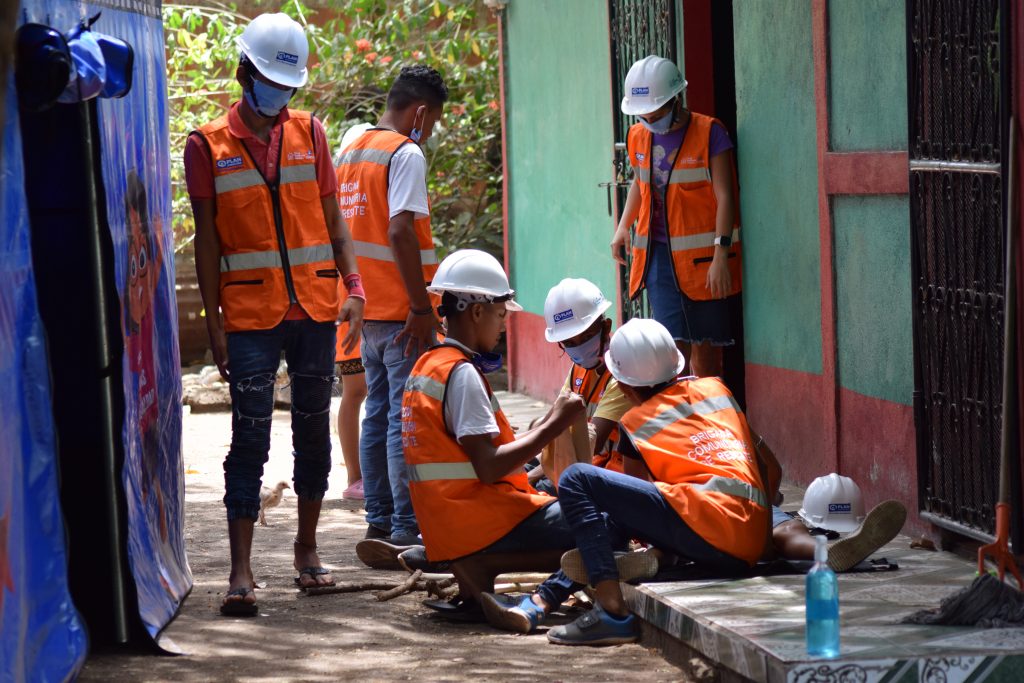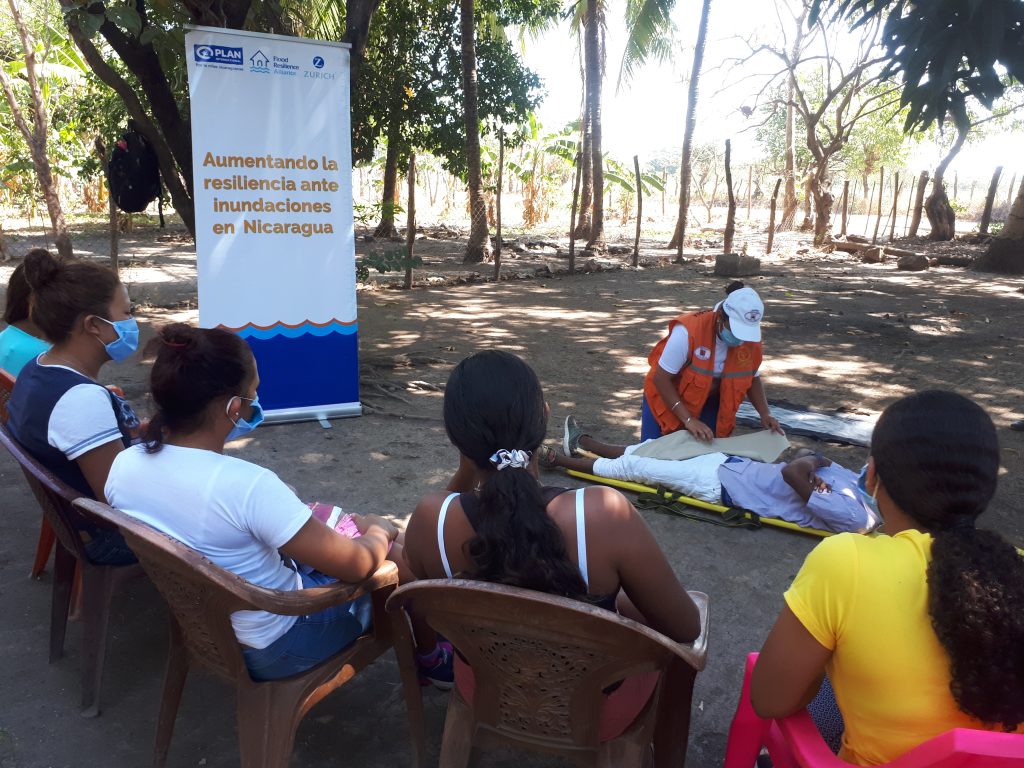In Nicaragua, historically, gender stereotypes have limited the participation of young women in community groups and community activities. Through our work in the Zurich Flood Resilience Alliance, Plan has taught women how to act in emergency situations and take on a leadership role for emergency response in their community.
Plan International is a member of the Zurich Flood Resilience Alliance and implements the project “Increasing Flood Resilience in Central America” in four communities in Nicaragua. The project uses the Flood Resilience Measurement for Communities (FRMC) to get a better understanding of strengths and weaknesses in terms of flood resilience in these communities.
During our FRMC baseline study, a high percentage of the surveyed population expressed that there were few opportunities for young women in the communities to participate and/or lead local community groups (formal or informal) that coordinate measures to enhance flood resilience.
To address this issue, Plan, together with the local project participants, decided to implement activities that allow girls, adolescents, and women across all ages to strengthen their self-esteem, security, and self-protection during emergencies. Participation in the community groups empowers them and amplifies their voices.
The so-called “rescue brigades” are one of several community groups developed through our project. The brigades are composed of young people from the local community. They participate in these community groups on a voluntary basis. Plan coordinates, trains, and equips them with certain skills (for example, skills related to first aid and to measures that need to be taken in emergency situations) so that they can respond to multi-hazard risk scenarios (floods, forest fires, etc.).

Sobeyda and Heydi’s experiences
Plan International has trained us on forest fire prevention and control, first aid and other relevant topics. This has strengthened our capacities and we are now better prepared for any emergency. I recognise that as a young woman I can make a valuable contribution to the organisational activities of my community.
Heydi, a young woman who is part of her community’s rescue brigade.
Sobeyda and Heydi are two young women and rescue brigadiers. We asked them about their experience and have summarized their answers below.
What training have you received as a rescue brigade member?
We have learnt how to provide first aid in case a person needs it. We have practiced some lifesaving and rescue activities and how to move people to a safe area. We have also learned to check whether the person in need shows vital signs such as pulse and respiration, and some techniques to contain the blood, if the person in need is bleeding. All this knowledge is very useful in case there are casualties after a flood event.
What was the participation of young women in your community like before the project with Plan?
Previously, only men were involved in these activities. Women were typically assigned household chores such as sweeping, cooking, and cleaning. Our participation was very little or non-existent. There existed the belief that women were only there to take on domestic chores and that it was the men who should look after communal activities.
How does participation in the activities led by Plan make you feel?
The project provides equal opportunities for both men and women. I feel like my opinion is taken into account and we feel listened to. We like to see that girls and women are the ones who coordinate and lead these brigades. For us this is a very important moment in which we have the opportunity to show the capabilities that we have as women and how we can contribute to disaster risk reduction in our community.
We now have a brigade which is in charge of attending to any risk situation in the community. We are trained and equipped to safeguard the lives of families in the community, focusing on the most vulnerable groups such as children, people with disabilities, pregnant women, and the elderly.

Why Plan International works with women and girls
Not only in Nicaragua, but across the globe, girls, adolescent girls, and women are confronted with stereotypes associated with their gender. Girls and women are seriously impacted by rigid gender norms and roles – they are more likely to experience restrictions of their freedom and mobility, they experience epidemic levels of violence and harassment across the globe and have fewer opportunities to choose how to live their lives than men generally do.
Strengthening female leadership in community groups helps to demystify these stereotypes and promote gender equality. It is vital to empower girls, adolescents’ girls, and women, as this catalyses further structural changes within the community. If you want to learn more there are ample resources available from Plan International, for example this report on creating sustainable change for adolescent girls.

Comments